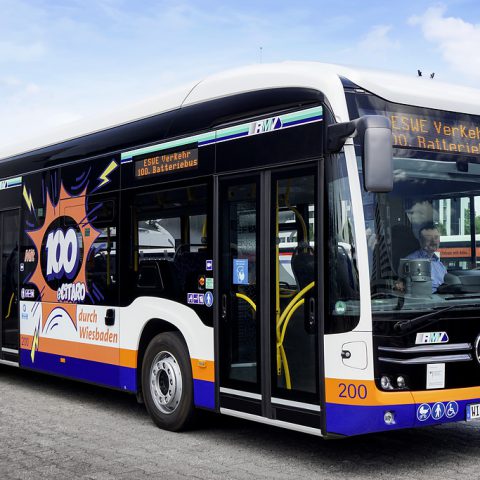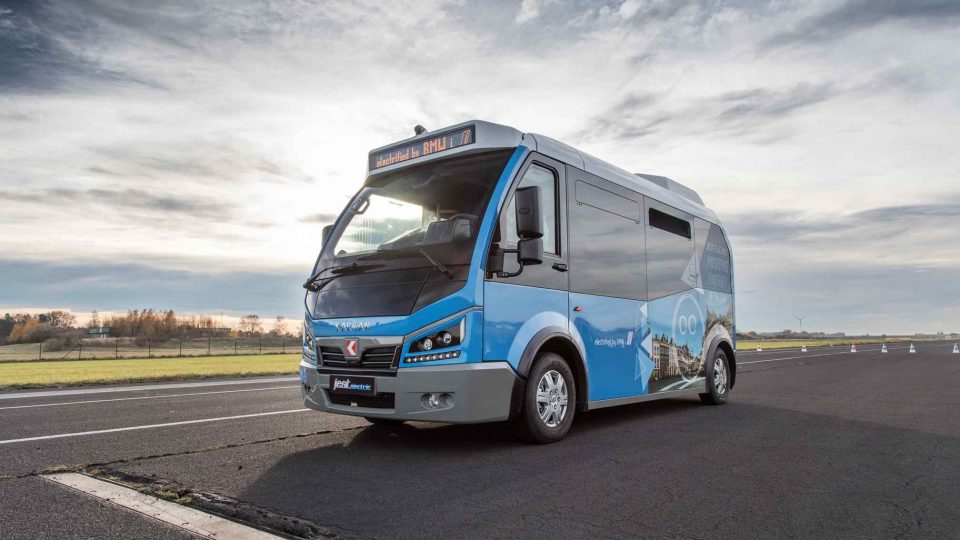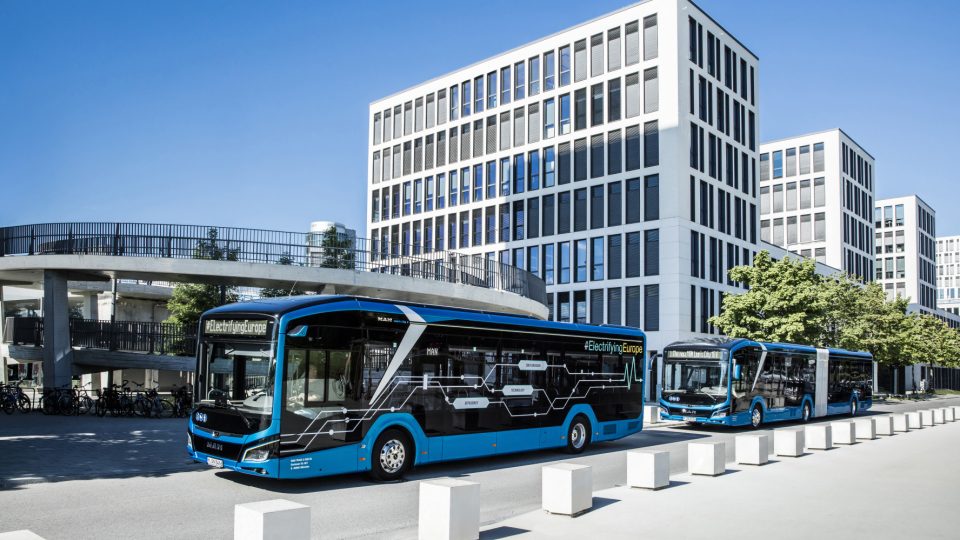In Wiesbaden plans for transition to e-buses face cuts in budget (and H2 buses were decommissioned)
Fuel cell bus project dismissed, a fleet of 120 12-meter e-buses that won’t be expanded (and rumors of intention to sell them have quite strong). This is, according to German media, the situation facing ESWE Verkehr, public transport operator of the city of Wiesbaden. The Wiesbaden-based transport company ESWE Verkehr procured its first electric buses […]

Fuel cell bus project dismissed, a fleet of 120 12-meter e-buses that won’t be expanded (and rumors of intention to sell them have quite strong). This is, according to German media, the situation facing ESWE Verkehr, public transport operator of the city of Wiesbaden.
The Wiesbaden-based transport company ESWE Verkehr procured its first electric buses in 2019, followed by ten hydrogen buses, including a refuelling station, in 2021 (buses were delivered by CaetanoBus). Then, in late 20243, Wiesbaden has halted its fuel cell bus project. Ten fuel cell buses were set to be retired, a year after delivery. The publicly owned transport company’s €2.3m ($2.44m) filling station was reportedly no more operational since some time.
And reports have also surfaced regarding the decommissioning of the 120 electric buses in Wiesbaden…
Now German media Merkurist sums up the facts around changing ESWE’s plans.
Wiesbaden pioneering planes on e-mobility
Let’s make few steps back. In 2019, ESWE Verkehr in Wiesbaden placed its first order for 56 Mercedes eCitaro buses. In February 2021 the first unit hit the road. In all, 120 electric buses have now been ordered. The 100th eCitaro from this overall package has been delivered to the Hessian state capital in summer 2022. ESWE was the first transportation company in Germany to order an overall system consisting of city buses along with an entire infrastructure. Chargers were provided by Dutch Heliox.
It should be also mentioned that a few weeks after the first delivery, the first units of Mercedes eCitaro with solid-state battery were taken out of service and recalled by the manufacturer for checks on a potential insulation fault that could lead to short circuit. Nevertheless, it looks like the issue had been then fixed.
What happens now?
An ESWE spokesperson cited to Merkurist, concerning H2 buses, a compatibility issues with local conditions and operational challenges. Confirming the sale of five hydrogen buses to Mainz in spring 2023, along with the accompanying refuelling station, ESWE Verkehr indicated ongoing efforts to finalize the transition. However, details regarding the remaining five hydrogen buses remain undisclosed.
But what about the rumors surrounding the e-bus decomissioning? “Following drastic cuts in the city budget, ESWE Verkehr will have to make do with less money this year than initially planned. The company had announced an additional requirement of 17 million euros to the city for 2024 – but this was not approved. As in the previous year, ESWE Verkehr will still receive around 58 million euros from the city. Nevertheless, the cancelled 17 million euros are forcing the company to cut costs. According to a resolution passed by the Wiesbaden city council, ESWE Verkehr is therefore to withdraw from “projects that are not absolutely necessary”. The resolution also refers to an ‘expansion of passenger capacities”. Solo buses are to be successively replaced by articulated buses‘”
Still according to the Merkurist, the Frankfurter Allgemeine Zeitung has reported that the 120 solo electric buses in Wiesbaden are to be sold. But the operator denied this, as there are also financial reasons against the sale: “The vehicles are subsidised with taxpayers’ money and money would have to be paid back if they were sold”, a ESWE spokeperson is quoted as saying on the Merkurist.








